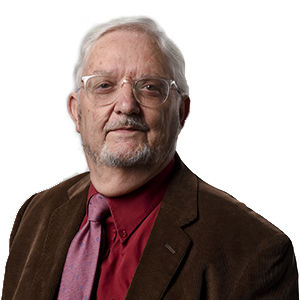[ad_1]

As I set my clocks back an hour to say goodbye to daylight saving time and prepare for the winter, I am always reminded of how quickly time passes,and the ethical issue of how I am spending my own, even the “extra hour” I supposedly get after the November time change.
Would I spend another hour resting or watching television or perhaps writing another column or even book? How I might spend that hour could reveal my own priorities for how I invest any time I have not yet invested. Perhaps the practical philosopher Ben Franklin was right in 1746 when he wrote in Poor Richard’s Almanack: “Dost thou love life? Then do not squander time, for that’s the stuff life is made of.”
I’ve done a lot of wasting time in my time, but though I seldom question Dr. Franklin, I believe that sometimes we need to waste time — take a day off or a long walk in the woods or read a book. Life is made difficult and stressful working too much, always being busy, never pausing to look at the emerging colorful leaves on trees or sitting quietly for five minutes. We are, after all, human beings, not just human doings.
Maybe we have the notion of time all wrong, and that may help account for our feelings of watching it speed by all too quickly so that we run out of it near the end — regretful and weary.
Another thought came as I reflected on changing the clocks. Maybe time is not fixed but something we designed to measure it by the seconds, minutes, hours and beyond.
Think of it this way. Time can be shaped by our perceptions. If I wait for an egg to boil, three minutes may seem like an eternity. But if I am watching a sunset for three minutes, I may lose track of time itself and spend what might seem an eternity watching the sky.
That is why the Greeks had two words for time that reveal its various dimensions: Chronos and Kairos.
Chronos is clock time, the way we usually measure the passing of our everyday lives. It’s necessary, even useful — time that helps to establish routines and boundaries. Without it, the world might be more confusing and chaotic than it sometimes feels. How else would we know when to get up or go to work? In this understanding of time, Franklin was right — don’t waste it because one day it will run out with our to-do lists not completed.
Kairos is a different understanding of time, measured by its quality, not quantity. If you are like me. you can probably spot Kairos in your own life, perhaps the birth of a child or reaching a personal goal or life achievement. Only you know those moments in your life, but cherish them while you can and rejoice. These moments might not happen often, but when they do you know it and feel their importance. As the poet Yeats wrote, “Be secret and rejoice, because of all things known, that is most difficult.”
I remember a moment but deeper than everyday measures when I sat down under an old tree on a hilltop overlooking the ruins of Tintern Abbey in Wales and became aware of more than the passing of minutes. It felt as if time itself had stopped and I had caught a glimpse of something far deeper. It was akin to the feelings that poetry brings about, a momentary stay against confusion and a sure sense that there was something deeper within and without, beyond the veil of perception that separates us from another reality.
Two centuries before me the poet Wordsworth sat near that spot above Tintern Abbey and wrote these words in a poem I now understood experientially and that will remain with me for a very long time, in this life at least and perhaps beyond.
And I have feltA presence that disturbs me with the joyOf elevated thoughts; a sense sublimeOf something far more deeply interfused,Whose dwelling is the light of setting suns,And the round ocean and the living air,And the blue sky, and in the mind of man:A motion and a spirit, that impelsAll thinking things, all objects of all thought,And rolls through all things.
John C. Morgan is an author and teacher, whose poems have appeared in many publications and whose columns can be found at www.readingeagle.com
[ad_2]
Source_link


